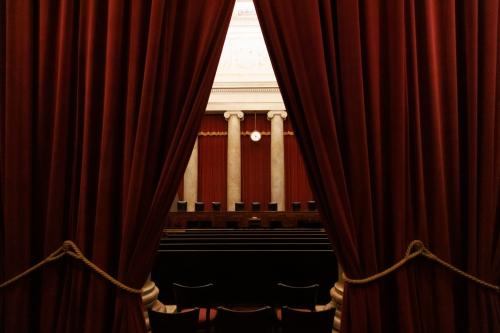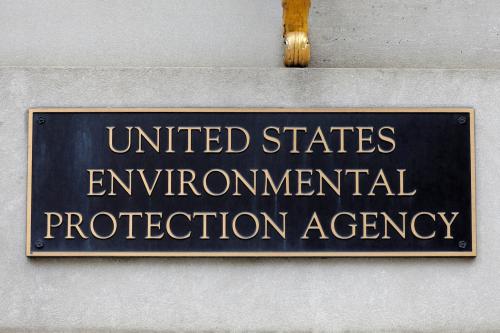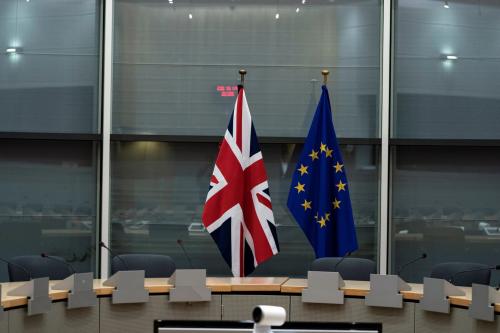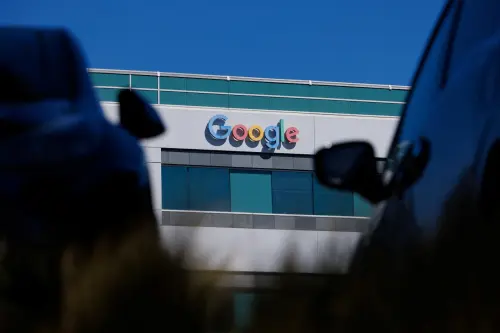On September 12, 2023, the most significant U.S. technology antitrust trial in decades opened in a Washington, D.C. federal district court. In U.S. v. Google, the U.S. Department of Justice (DOJ) and 38 state and territory attorneys general allege that Google has violated Section 2 of the Sherman Act, an antitrust law originally enacted in 1890.
The Sherman Act prohibits using exclusionary practices to maintain a monopoly. The DOJ and state attorneys general assert that Google has done just that in relation to certain internet search services. As often occurs, the case was narrowed in the months leading up to the start of the trial. Here is an overview of some of the key questions being addressed at the trial, which is expected to last several months.
Are Google’s browser agreements exclusive?
Google has entered into browser agreements with Apple and Mozilla under which Google is the default search engine for web browsers provided by those companies. For example, with respect to Apple, this means that a person who purchases a new iPhone, launches the Safari web browser, and enters a query into the search bar will, by default, receive search results from Google. In return for making Google the default search engine, the web browser providers receive a portion of advertising revenue arising from those searches.
A key question is whether these agreements are exclusive. Google asserts that they are not, arguing that the default settings can easily be changed by consumers who wish to use a non-Google search engine. The DOJ responds, “Even where search users might want to switch defaults, the effort and knowledge required to make that change biases them towards sticking with the default option.”
In an August 2023 ruling regarding summary judgement motions, Judge Amit Mehta wrote that “It is best to await a trial to determine whether, as a matter of actual market reality, Google’s position as the default search engine across multiple browsers is a form of exclusionary conduct.” In making this inquiry, the court will consider not only whether the browser agreements are actually exclusive, but also whether they are de facto exclusive. An agreement that lacks a formal exclusivity provision can nonetheless function in a de facto exclusive manner due to contextual factors, such as market dynamics and incentives.
A related question is whether any exclusivity associated with the browser agreements is simply the result of market competition. Google argues that it won the competition to be the default search engine for browsers made by Apple and Mozilla “on the merits as established and judged by its customers, not through anticompetitive or exclusionary conduct.” The DOJ counters this by stating that the “existence of multiple bidders does not transform an anticompetitive agreement into a permissible one.”
Are Google’s agreements regarding Android devices exclusive?
Android is the world’s most widely used mobile operating system, with a global market share as of December 2022 of about 72%, versus 27% for iOS. In the United States, the Android market share as of December 2022 was about 44%, compared with about 56% for iOS. Google has agreements with Samsung and other mobile device manufacturers of Android-based phones to make Google the default search engine on those devices. Google also has similar agreements with cellular wireless network providers that sell Android phones.
In relation to the Android antitrust question, Google enters into two types of agreements: Mobile Application Distribution Agreements (MADAs) and Revenue Share Agreements (RSAs). A MADA is a nonexclusive agreement allowing an Android device maker to preinstall a set of Google apps, including Google search and the Chrome browser. Since a MADA is nonexclusive, it permits a device maker to also preinstall non-Google search apps. RSAs introduce an additional wrinkle: Device makers and wireless carriers that enter into an RSA must make Google the exclusive, preinstalled search app on the device, and are thus prohibited from preinstalling any competing search app.
The revenue share that accompanies an RSA creates a strong economic incentive. And, because an RSA is only available to device makers that also have signed a MADA, the plaintiffs argue that this linkage has the effect of turning MADA into an exclusive contract. Google responds by underscoring that MADAs are nonexclusive and that device makers and wireless carriers are free to choose—or decline—to enter into the exclusive relationship that accompanies signing an RSA.
If the agreements are exclusive, how much of the market do they foreclose?
A finding that the Google browser and/or Android agreements are actually or de facto exclusive would not necessarily mean Google is violating antitrust laws. As the D.C. Circuit (which sets precedent for the district court hearing U.S. v. Google) explained in a 2001 decision, “Permitting an antitrust action to proceed any time a firm enters into an exclusive deal would both discourage a presumptively legitimate business practice and encourage costly antitrust actions. Because an exclusive deal affecting a small fraction of a market clearly cannot have the requisite harmful effect upon competition, the requirement of a significant degree of foreclosure serves a useful screening function.”
A key question that the U.S. v. Google trial will therefore explore is: To the extent that the browser and/or Android agreements are exclusive, is the resulting market foreclosure “substantial”? Unsurprisingly, the parties disagree, with the DOJ asserting that the answer is yes and Google asserting the opposite. The parties also disagree on the methodology that should be used in obtaining the answer.
What is the relevant market?
Examining alleged anticompetitive behavior requires identifying the relevant market. With respect to internet users (as distinct from advertisers), the DOJ argues that “general search services” is the relevant market and that offerings in that market include Google search and Bing. Notably, the DOJ specifically excludes from this category “specialized search services or other websites that are limited to specific topics, such as discounted hotels or airline fares,” writing that “Yelp can find you a pizzeria but is no help when it comes to the symptoms of strep throat.”
Google asserts that the relevant market for search is broader, arguing that “by defining the relevant market to include only general search engines, Plaintiffs distort the commercial reality that users routinely substitute other search providers for general search engines—such as Amazon when they shop, or Expedia when they travel—and thereby improperly exclude many of Google’s strongest competitors from the relevant market.” Thus, the trial will explore the competing narratives regarding the definition of the relevant market for internet search and, separately, for search advertising.
A landmark antitrust trial
In addition to the above, the court will also consider an allegation by the state and territory attorneys general (but not the United States) that a Google marketing tool called Search Ads 360 is used in anticompetitive ways in relation to advertising. But the specifics of the questions to be addressed at trial aside, U.S. v Google has enormous implications for the technology sector. It is the first major U.S. trial to examine antitrust in the context of the contemporary Big Tech landscape.
The ruling from the current district court trial will not be the last word, as the non-prevailing party will almost certainly appeal to the D.C. Circuit. And regardless of the eventual outcome, there will be calls for change. A Google victory would lead to assertions that the technology ecosystem has outpaced antitrust law. And a DOJ victory would lead to assertions that antitrust law is being applied and interpreted far too broadly.
-
Acknowledgements and disclosures
Google is a general, unrestricted donor to the Brookings Institution. The findings, interpretations, and conclusions posted in this piece are solely those of the author and are not influenced by any donation.
The Brookings Institution is committed to quality, independence, and impact.
We are supported by a diverse array of funders. In line with our values and policies, each Brookings publication represents the sole views of its author(s).








Commentary
A primer on some key issues in U.S. v. Google
September 19, 2023